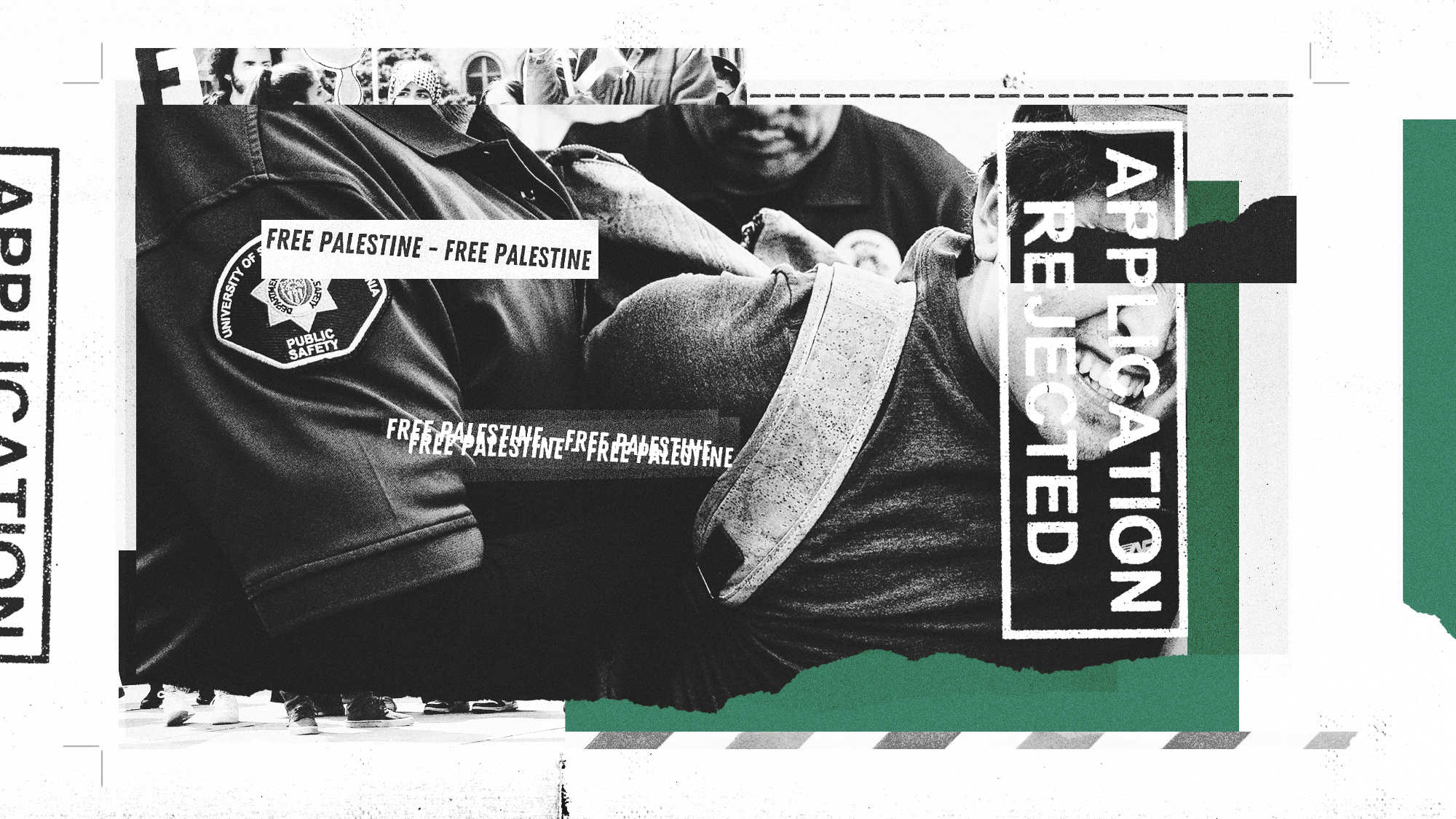Are campus protesters jeopardizing their employment futures?
As college students across the country speak out against the Gaza war, some employers are already threatening post-graduation consequences


A free daily email with the biggest news stories of the day – and the best features from TheWeek.com
You are now subscribed
Your newsletter sign-up was successful
To the extent that there is such a thing as a "normal" academic year, this past one has been anything but. Across the country, student protests against the ongoing war in Gaza have consumed college campuses, prompting counter-protests, police action, and external reactions from across the ideological spectrum. Throughout it all, the focus has largely been on the campuses themselves: how the schools have responded to these once-in-a-generation actions and the potential effects on the coming presidential election.
As graduation season looms, however, college protesters are now facing threats from some of the legal and business world's most powerful figures who claim that by joining their campus demonstrations, many outgoing students have ruined their chances of post-collegiate employment. Recently a group of 13 conservative federal judges declared that, having "lost confidence in Columbia as an institution of higher education" after the Gaza protests there, they would no longer hire anyone who "joins the Columbia University community — whether as undergraduates or law students — beginning with the entering class of 2024." The statement comes seven months after "several CEOs announced a similar boycott against Harvard students" who belonged to groups that solely blamed Israel for the Oct. 7 massacre, Axios said. Are these nascent blacklists a real threat to graduating students, or simply political posturing from a limited set of elite employers?
What did the commentators say?
So far, most companies have not been "revoking offers or terminating employees for simply attending a protest," Career Group Companies Executive Vice President Emily Levine told Fortune. But while simply participating in a protest might not be enough to jeopardize a prospective job, "employers are going to be looking into your criminal history." Accordingly, protests featuring "hate speech, violence, vandalism, and illegal activities that [students] can be arrested and suspended for [could] hurt people's chances of getting positions." Legal and financial institutions are "particularly sensitive when it comes to aggressive protests," Whitney Group CEO Gary Goldstein said to Fox Business.
The Week
Escape your echo chamber. Get the facts behind the news, plus analysis from multiple perspectives.

Sign up for The Week's Free Newsletters
From our morning news briefing to a weekly Good News Newsletter, get the best of The Week delivered directly to your inbox.
From our morning news briefing to a weekly Good News Newsletter, get the best of The Week delivered directly to your inbox.
Protests at elite universities may have merely contributed to a pre-existing refocusing away from the Ivy Leagues among potential employers. "We've always looked beyond the target schools but we're doing it even more so now given recent events," activist investor Daniel Loeb told the New York Post. "The bloom is off the Ivys," agreed Hilltop Securities Senior Managing Director Fred Prager to Forbes. "What has occurred more recently, with the pandemic and with all this nonsense going on, post Oct. 7, and all the rest has just been a bit of an accelerant." Beyond the students themselves, it's the "reputation of Ivy League schools among employers [...] at stake," Gen-Z-focused outlet Zivvy said. The same elite and exclusive qualities that made the Ivy League appealing to potential employers are now "scrutinized under the lens of current campus climates."
What next?
In the case of Columbia graduates, at least, the boycott from conservative judges "will have limited real-world impact," as "Columbia Law School is not a major feeder into federal clerkships," Reuters said. Moreover, while some potential employers may be apprehensive about hiring graduates who participated in the campus protests, others are going out of their way to seek those same students out. There are "plenty of companies & CEOs eager to hire you, regardless of university discipline," Hims co-founder and CEO Andrew Dudum said on X in a post encouraging protesting students to apply to work for him.
Moral courage > College degreeIf you’re currently protesting against the genocide of the Palestinian people & for your university’s divestment from Israel, keep going. It’s working.There are plenty of companies & CEOs eager to hire you, regardless of university discipline.…May 1, 2024
Questions about this class of protesting soon-to-be-graduates may also be less contingent on the specifics of this particular protest movement, and more a matter of the broader era in which it's taking place. While protests in the past century "were shot on 60mm film, very very grainy, hard to get resolution particularly at night," footage of protests today is being shot in high definition, and "every single image goes into an AI generator and will tell you who that individual is," business mogul Kevin O'Leary said. "Within weeks, I'm gonna be able when we're doing your background check, I'm gonna find this." Ultimately, we'll have to wait and see if "recruiting is going to change," Emily Levine said. "I think it's too soon to tell."
A free daily email with the biggest news stories of the day – and the best features from TheWeek.com
Rafi Schwartz has worked as a politics writer at The Week since 2022, where he covers elections, Congress and the White House. He was previously a contributing writer with Mic focusing largely on politics, a senior writer with Splinter News, a staff writer for Fusion's news lab, and the managing editor of Heeb Magazine, a Jewish life and culture publication. Rafi's work has appeared in Rolling Stone, GOOD and The Forward, among others.
